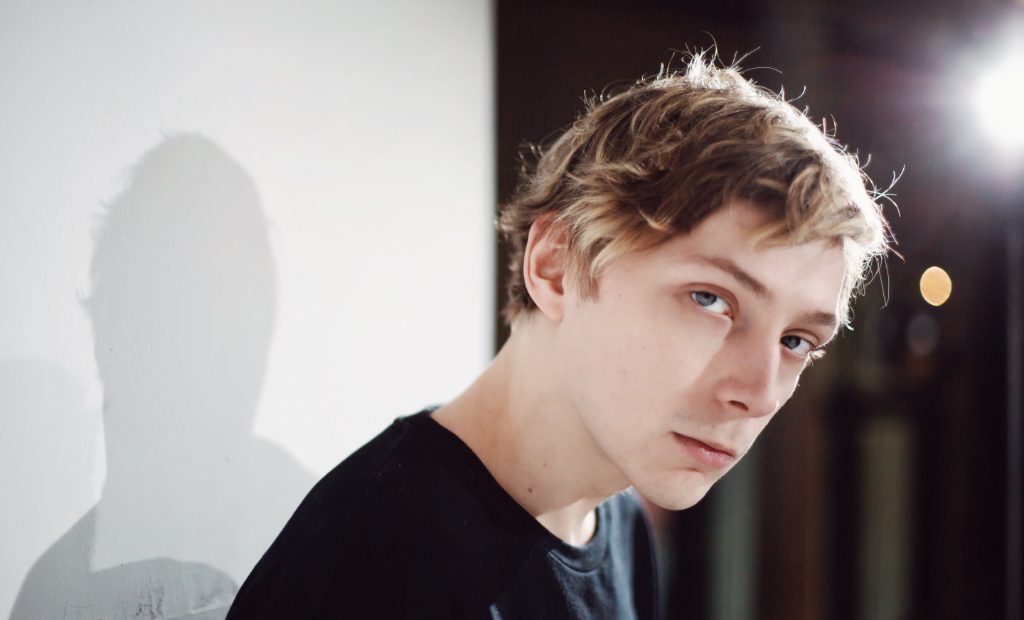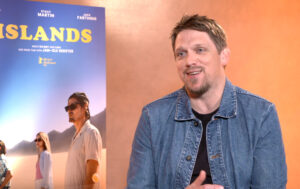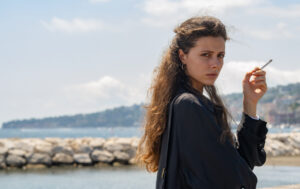“Our project is very much politics on a small-scale family basis. Parents are the reason the children are the way they are”: An interview with Acid director Alexander Gorchilin

Alexander Gorchilin’s stark directorial debut, Acid, unleashes a torrent of emotion surrounding a disillusioned generation. Amid the bustling festival, we sat down with the emerging director and teased out the transition behind the camera and what it means to be a modern artist working in Russia today.
How did you come on board as the director to this project?
Have you ever read the fairytale Cinderella. I am Cinderella. It happened like in the fairytale. I woke up one morning with a phone call from the producers who asked me if I wanted to direct a film and I said, “Probably I want to”. Then this fairytale turned into a very painful six-month search for the topic since I was fully aware, and still am fully aware, of the fact that I am not a director.
I thought the only topic I could work was a topic I had something to do with. Had it been for another topic I probably wouldn’t have done it. Then we invited the screenwriter, Valeriy Pecheykin; it was his debut as well. Then we started working on the script based on my observations of people going on around me and life. It’s not an autobiography but at least there is space for my own personal observations.
Then I said, ok, it’s a debut but it can’t be only my debut where I appear all of a sudden, telling everyone that I am now a director. We also needed to film a cast that had a debut as well: for example, the young sister and also the artist in the film were not actors. It is a first time for them as well. Also for my DP it was a debut and an adventure for her. It was a wonderful crew and a friendly crew of newcomers.
How did you translate your experience as an actor to working as a director?
As far as my own experience as an actor, it was helpful and not so helpful at the same time. If you read a role you immediately start processing and digesting it through your own eyes as an actor, which is not very helpful. I had to understand that there are people around me who want to help me and make my project as good as it can be. I have picked them because they are probably more talented than I myself. I have to admit that.
A strength of the film was the relationship between Sasha and Peter. How did you work with these actors developing those roles?
Well, Filipp Avdeev who plays Sasha is a childhood friend of mine. In spite of having a friendship with him, I invited him to play the part. It turned out he was quite easy to work with. We didn’t need many words to explain things, having had a lot of experience we shared through our lifetime. But I understood it was very difficult for him to play a part of someone that was a nobody. The script was not very helpful for him to fulfil this role. This is not a genre film. He had to play a person that is full of inner feelings but cannot express them or bring them to the outside. Aleksandr Kuznetsov (Peter) convinced me the moment he came to the casting that he is a person with a lot of charisma and a firm view on the world.
Acid is dedicated to mothers and fathers who are mostly absent from the film. Do you think Acid is a window for parents to understand their children?
This dedication I made is rather ironic. I do not want to assume the responsibility to tell people what’s good and bad. In my film I’d rather try to clarify and formulate questions for the audience. For my own sake, as I am part of that generation. The strange thing is the film was already screened in Russia and it seemed more important for the generation of parents than the young generation. My mother felt very offended by this film, because she said, “You’ve made such a project. It must be about me”.
What is the meaning of the ambiguity of the word acid in the film?
Indeed, we used the ambiguity to express many things: acid as a drug that could lead to certain artistic reflections, as something you use to describe your inner feeling of unclarity and also, as a chemical substance that decomposes matter. We tried to use this ambiguity to find the rhythm. It has an influence not only on the scenes but on the music and the colour spectrums that we used. It’s like a feeling.
It’s tempting to see this movie as about the political situation in Russia, now as a country that doesn’t offer much to young people. Would you be averse to such a political reading of the film?
You’re absolutely right. We are the consequence of what happens in the political arena. Politics has a huge influence on how people look at the world. Politics is the reason and we are the consequence. We do not say that openly in the film but we had that in mind. If all around you, you have all kinds of prohibitions, as a consequence, people have inner emptiness and uncertainty. As a consequence, they don’t do anything. Also, politics is not always grounded on the national level but has implications inside families. Our project is very much politics on a small-scale family basis. Parents are the reason the children are the way they are.
Referring to the artist who works with acid in the film and is, in a way, a symbolic figure, in your opinion what is the task for art in a society like Russia today? Is it for registering what is going on or is it about transgression and to go beyond circumstances?
First of all, I must say, the person in the movie, I don’t consider him an artist at all. He just speculates; he is very clever. He knows the strings to pull to get an audience and to get an influence and to get rich. He is very much aware of that and he speaks about that frankly. At the same time, it’s his personal drama. He would like to have more talent. He dreams of having more talent and to get rid of the legacy of his grandfather, which is symbolised through the acid to half destroy it. He would like to create something of his own.
He is the same kind of person with deficiency and not being sure of himself like the rest of the people in the film. He is so much lost that we don’t even understand who he really loves. There is a moment when we think he is gay but it’s all about double standards because at the end he goes with his wife and newborn child to church to have it baptised. So he is not free, either on this side or the other. He is constantly in a state of lying to himself.
This does not express my overall attitude to modern art. I consider modern art to be the engine of progress. At least for Russia that is definitely the case. On the other hand, it is easy to use modern art to manipulate people and try and pretend you are such a great person and artist by creating an external illusion. There are great artists who don’t do that who really do something full of new meaning. Let’s take the example of Kirill Serebrennikov. He’s not only a director but the epitome of what a modern artist is all about. He is here although he is not here. He protests and creates things that resonate within people
Mary-Catherine Harvey
Photo: WIDE
Acid does not have a UK release date yet. Read our review here.
Read more reviews from our Berlin Film Festival 2019 coverage here.
For further information about the event visit the Berlin Film Festival website here.

























Facebook
Twitter
Instagram
YouTube
RSS